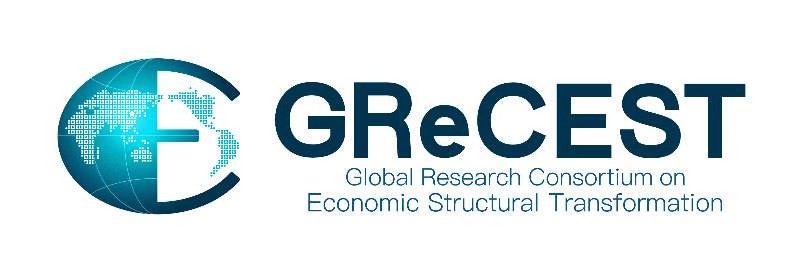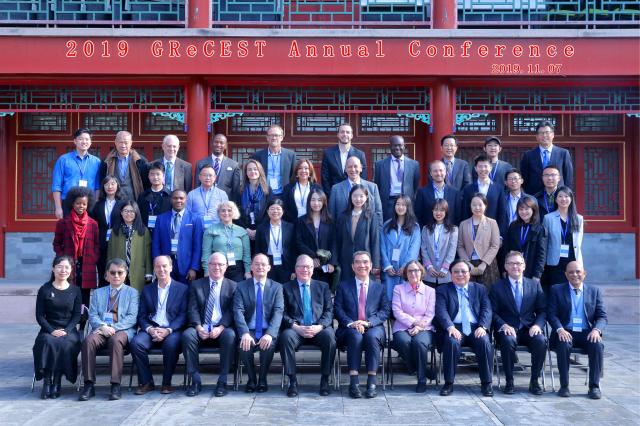英文首页﹀
INSE Hosted the Third Annual Conference of GReCEST
2019-11-14

The Institute of New Structural Economics at Peking University (INSE) held the third annual conference of Global Research Consortium on Economic Structural Transformation (GReCEST) on November 7 and 8, 2019.

Initiated by the INSE at Peking University, formerly the Center for New Structural Economics (CNSE), with support from the International Food Policy Research Institute (IFPRI) and the African Center for Economic Transformation (ACET), GReCEST aspires to foster intellectual partnerships and promote original thinking and innovative practice in an effort to help developing countries to achieve economic structural transformation. Building upon two successful annual conferences and one policy dialogue hosted in Beijing and Ethiopia over the past 3 years, the 2019 event brought together over 60 government officials, think tank leaders and scholars to address on critical development issues now facing China and the world regarding economic structural transformation.
The conference opened with remarks by Justin Yifu LIN, Dean of INSE and Chair of the GReCEST Steering Committee; Rob FLOYD, Director and Senior Advisor of African Center for Economic Transformation (on behalf of K.Y. AMOAKO, President of ACET and Vice-Chair of the GReCEST Steering Committee); Teunis VAN RHEENEN, Head of Partnerships and Business Development, International Food Policy Research Institute (on behalf of Shenggen FAN, Director General of IFPRI and Vice-Chair of the GReCEST Steering Committee); Xiaojun Grace WANG, Deputy Director of United Nations Office for South-South Cooperation (UNOSSC) and Elizabeth KNUP, Director in China of Ford Foundation, acknowledging GReCEST’s mission to bridge academic research and policy practices, and contribute to the realization of the 2030 Sustainable Development Goals (SDGs) concretely.
Nicholas ROSELLINI, UN Resident Coordinator in China, delivered a keynote speech titled "Aligning UN Assistance with the 2030 Agenda – How We Do It", illustrating how Sustainable Development Goals (SDGs) can be used as an entry point for transformation through three case studies. Wencai ZHANG, Director-General of the Department of International Economic and Financial Cooperation at the Chinese Ministry of Finance, provided a thought-provoking keynote themed "How to Innovate International Development Cooperation in a Changing World".
Following the keynote speeches, Tilman ALTENBURG, Head of Research Programme: Transformation of Economic and Social Systems, German Development Institute (DIE); Rob FLOYD, Director and Senior Advisor, African Center for Economic Transformation (ACET); Khan Ahmed Sayeed MURSHID, Director General of Bangladesh Institute of Development Studies (BIDS); Alain NADEAU, Head of Representation, European Investment Bank Group and Teunis VAN RHEENEN, Head of Partnerships and Business Development International Food Policy Research Institute (IFPRI) joined in a lively roundtable discussion, in which they identified challenges faced by countries at different stages of development in achieving SDGs, and explored potential tailored solutions for tackling such challenges. Jiajun XU, Executive Deputy Dean of INSE, and General Secretary of GReCEST, moderated the discussion.
The conference agenda also featured sessions on a range of issues, including innovation and development; new technology and agricultural and rural transformation; development financing; relocate or automate: how Chinese light manufacturing firms respond to rising labor costs; and Special Economic Zones (SEZ). Over 20 experts reported their findings and ignited lively discussions among participants.
During the conference, the GReCEST secretariat also held a plenary session and a meeting amongst GReCEST Steering Committee members. In her closing remarks, Jiajun XU, Executive Deputy Dean of INSE and General Secretary of GReCEST, thanked the participants for their insightful instructions and recommendations, and emphasized that GReCEST will continue to promote south-south collaborative research, data collection, policy practices and country case studies, to form a platform supporting knowledge exchanges and mutual learning, to share development experience, and to facilitate developing countries to realize economic structural transformation.

